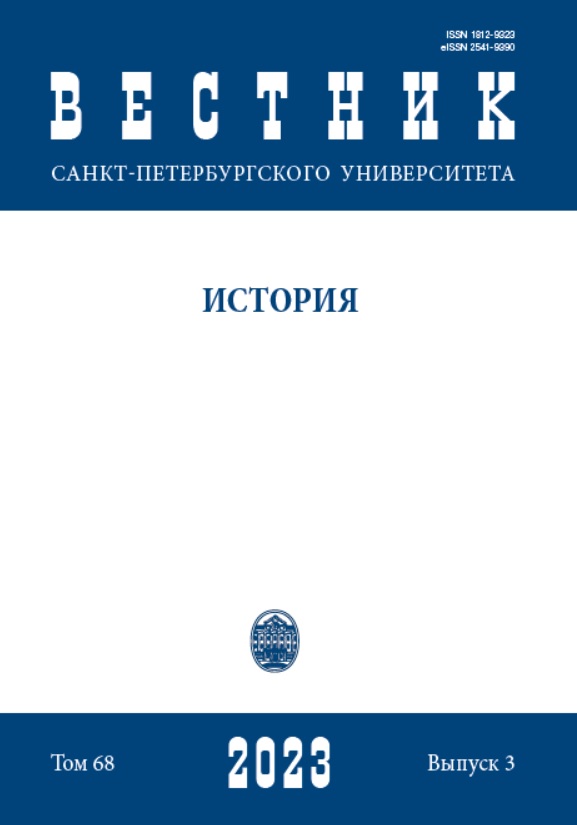Military Crimes in Classical Athens according to the Speeches of Attic Orators
DOI:
https://doi.org/10.21638/spbu02.2023.307Abstract
The article addresses the problem of military crimes in classical Athens based on the analysis of the speeches of Attic orators. First of all, the attention is drawn to the classification of crimes mentioned in speeches. In particular, the starting point for this study is the fragment from Andocides listing various types of military crimes: service evasion, desertion, cowardice, abandoning of shield, and non-participation in a naval battle. The article also examines cases related to violations of military discipline, which, apparently, stood apart from other types of crimes, which may be due to their lesser severity and punishment. In general, the issues under study in the article are considered from two perspectives: firstly, the reasons for the orators’ appeal to the topic of military crimes, and, secondly, the analysis of the cases of crimes themselves and their interpretation by the orators. The authors come to the conclusion that the orators did not specifically address the topic of military crimes, with the exception of Lysias, whose two speeches are devoted to accusing Alcibiades the Younger of evading service and of desertion. The facts of military crimes, as a rule, were used to create a negative characterization of a person or were part of an accusation of another crime. In addition, a very free interpretation of these facts could take place, when orators made an attempt to accuse a person of several crimes at once, as, for example, with regard to Alcibiades the Younger and Leocrates. The case of Demosthenes, is, in fact, unfounded accusation of desertion by his political opponent Aeschines. However, according to the sources, the allegations of abandoning of arms could be regarded as slander, for which punishment was provided. There are no cases associated with non-participation in a naval battle referred to by orators, which may be due
to the difficulty in identifying these facts and a small number of naval campaigns compared to those on land.
Keywords:
Athens, orators, evasion of service, cowardice, desertion, non-participation in a naval battle, abandonment of a shield, violation of discipline
Downloads
References
Downloads
Published
How to Cite
Issue
Section
License
Articles of "Vestnik of Saint Petersburg University. History" are open access distributed under the terms of the License Agreement with Saint Petersburg State University, which permits to the authors unrestricted distribution and self-archiving free of charge.





